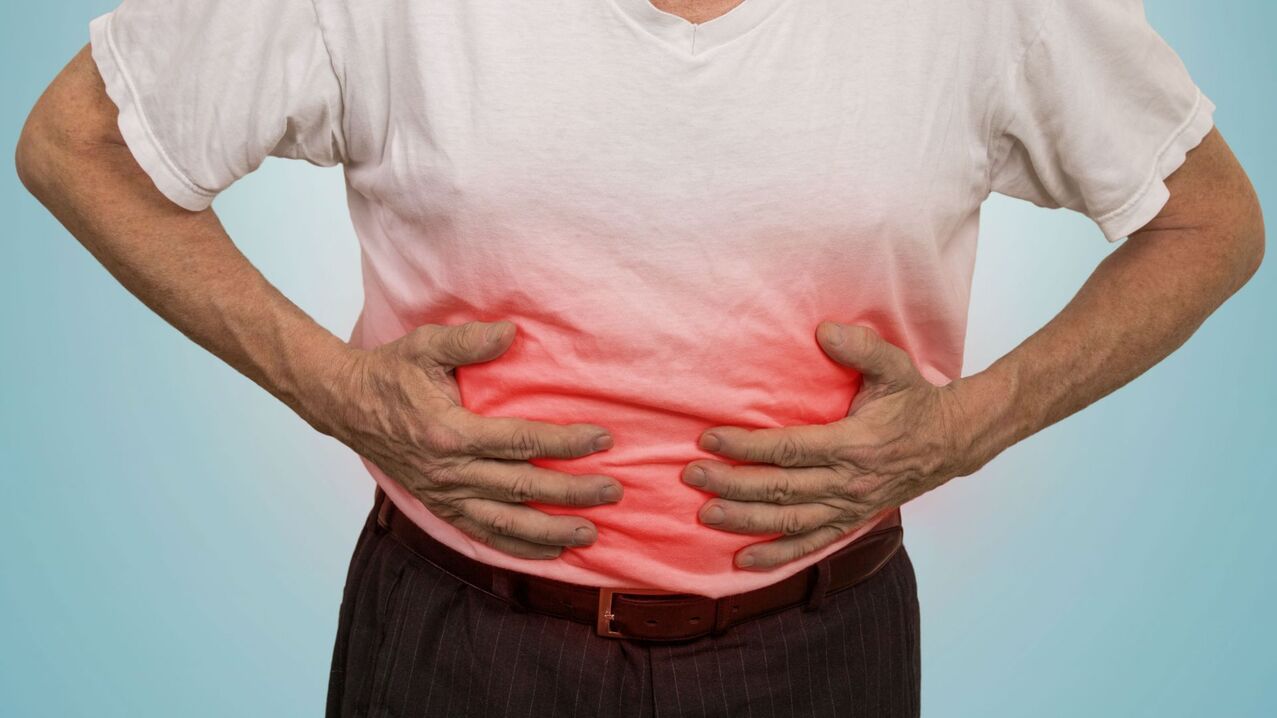
Inflammation of the pancreas is inflammation of the pancreas. It produces enzymes that are involved in breaking down proteins, fats and carbohydrates. It also produces insulin, which regulates blood sugar levels. Malnutrition, cravings for spicy and fatty foods, smoking and alcoholism, uncontrolled intake of medications - all of these factors are provoking the development of pancreatitis.
In this article, we will tell you how to recognize inflammation of the pancreas and what diet patients should follow.
How do you know you have inflammation of the pancreas?
Inflammation of the pancreas can be acute or chronic. Your symptoms vary depending on the form.
The acute form is manifested by severe belt pain in the upper abdomen. Pain syndrome occurs when you have eaten something fatty or drank alcohol. Nausea and vomiting begin, stool problems.
In chronic pancreatitis, the pain is localized at the top of the peritoneum, radiating to the back, to the left side of the chest, to the lower abdomen. The discomfort can be observed after consuming greasy, heavy food, alcohol, and frequent stress.
Symptoms of acute pancreatitis:
- Severe, persistent pain in the neighborhood.
- Increased body temperature.
- Blood pressure is rising.
- Pale or yellow complexion.
- Intense vomiting, not relief.
- Constipation, bloating, salivation.
Symptoms of chronic pancreatitis:
- Pain in the abdomen after a meal. Local or circumferential, backward.
- Warm causes stomach pain, while cold means relief.
- The patient assumes a forced position - bending the knee-elbow position or sitting position forward.
- Vomiting, diarrhea.
- Weight loss.
It doesn’t matter what form the disease is - acute or chronic. You need to sort out the food you eat and stick to your diet.
What diet is recommended for pancreatitis
The following dietary changes have been suggested to prevent the worsening of pancreatitis:
- Eat 4-5 times a day, with an even distribution of fatty foods in the diet;
- refusal to overeat;
- balanced diet;
- restriction of saturated fats and cholesterol;
- the inclusion in the diet of sufficient quantities of various vegetable fibers - cereals, vegetables and fruits;
- eating a variety of foods that are low in saturated fat and cholesterol (unrefined vegetable fats are limited only in overweight people).
What products are allowed
It is a mistake to think that patients with inflammation of the pancreas are "deprived" of delicious and varied foods. In fact, the list of permitted foods is quite extensive.
So you can eat:
- Dry white bread, cake.
- Vegetable soups with pasta, semolina and oatmeal.
- Lean meats.
- Lean fish, aspens.
- Porridge (buckwheat (puree), oatmeal, semolina, rice).
- Cottage cheese, cereal puddings and casseroles.
- The fat content of milk and fermented milk products is not more than 2%.
- Egg.
- Vegetables.
- Ripe and non-acidic varieties of fruits and berries.
- Butter and vegetable oil.
- Weak tea, non - carbonated mineral water, rosehip soup, 50: 50 diluted fruit juices).
The food must be wiped, cooked, steamed. You cannot eat hot or cold food. The optimum temperature is 30-50 ° C. Do not overeat, eat in fragments.
What foods should be discarded?
Aggravation occurs when eating and intake cause disturbances:
- fatty, fried foods,
- hot spices,
- a large number of raw vegetables, fruits,
- muffins and sweets (cakes, pies, cakes),
- alcohol,
- carbonated drinks,
- whole milk
Sample diet for patients with pancreatitis
- Breakfast: Milk / milk soup with pasta / cooked pasta. Tea with milk. Dry bread.
- Dinner: Vegetable puree soup, boiled rice / mashed potatoes, boiled fish / meat. Tea.
- Snack: Curd curd, jelly / jelly.
- Dinner: vegetable salad with olive oil, cooked meat / fish, jelly.
Snack required. Between meals, eat baked apples, low-fat cottage cheese, crackers.
Note that medication and diet are equally important. Nutritional therapy restores the normal functioning of the pancreas, avoiding aggravation of the disease. In this case, do not engage in self-medication! If you have symptoms of inflammation of the pancreas, see your doctor.































































